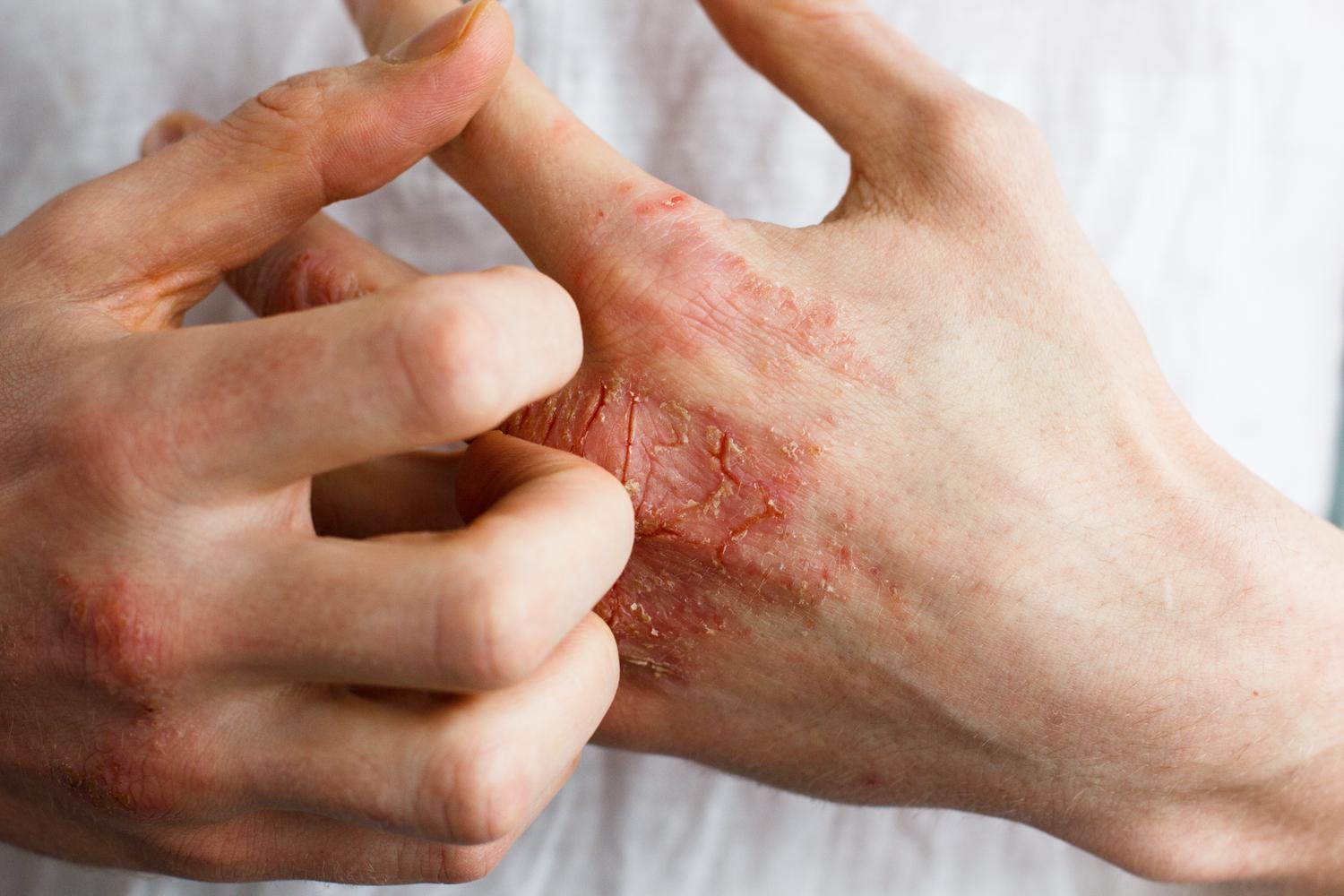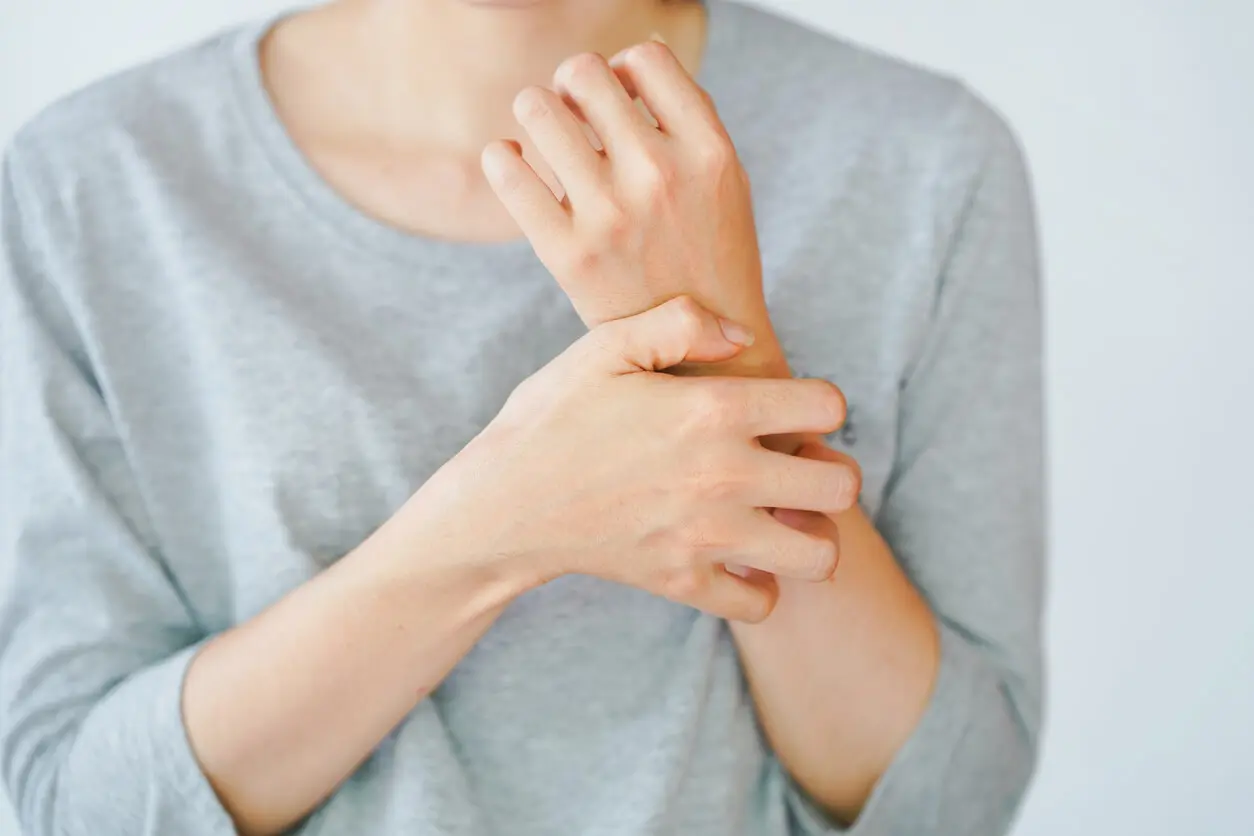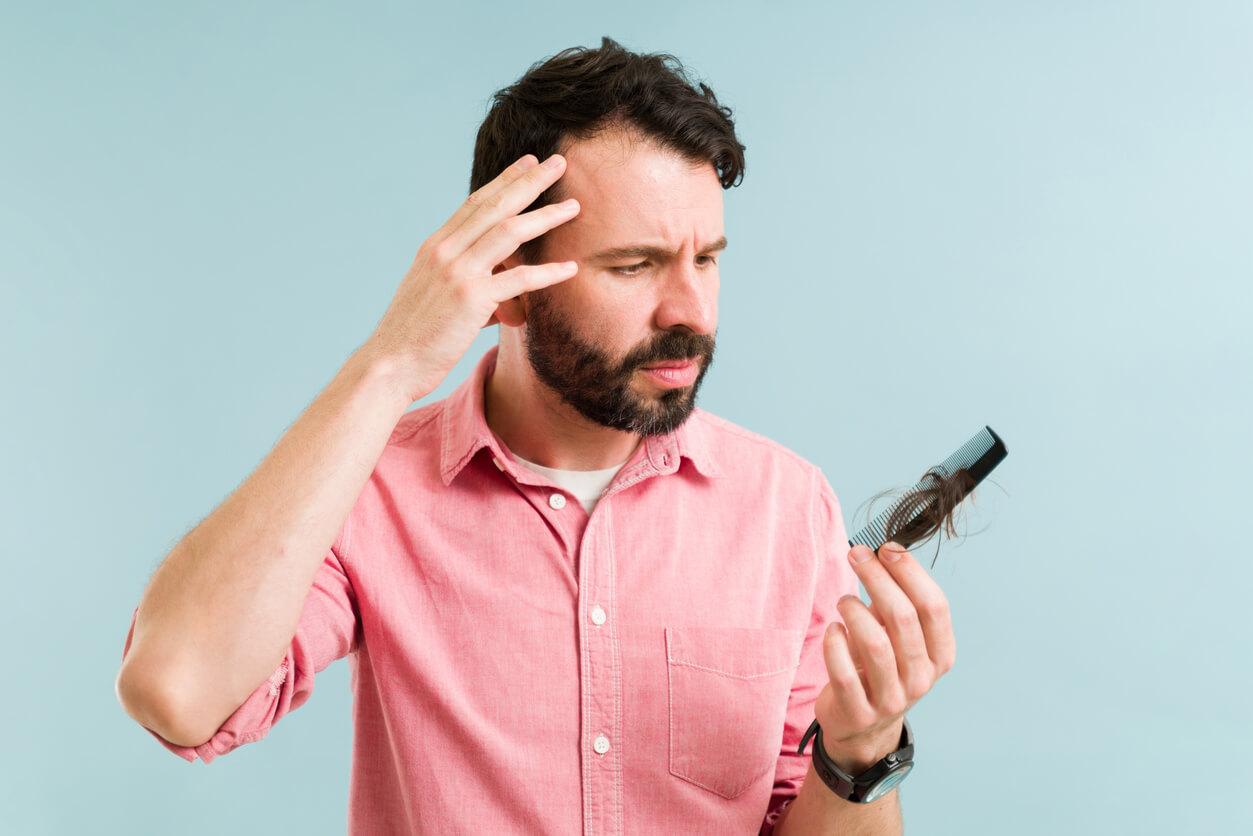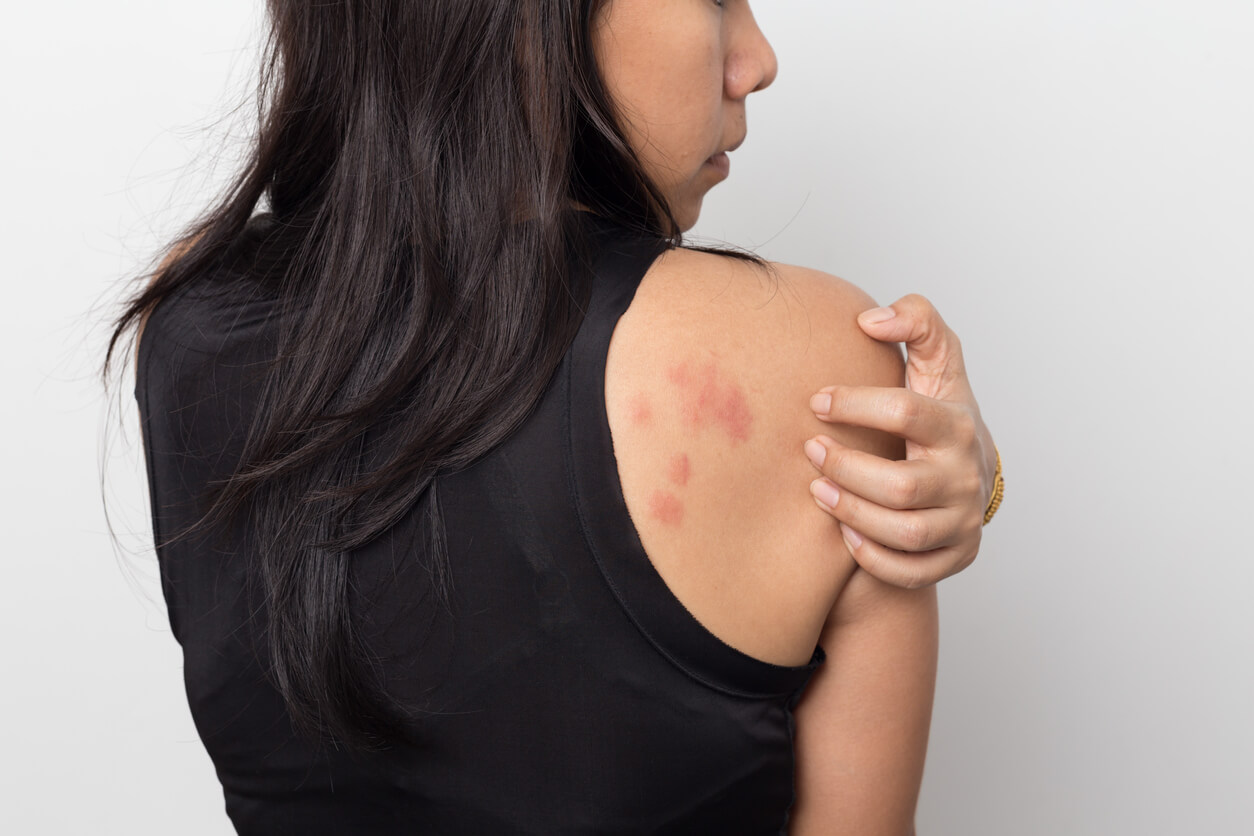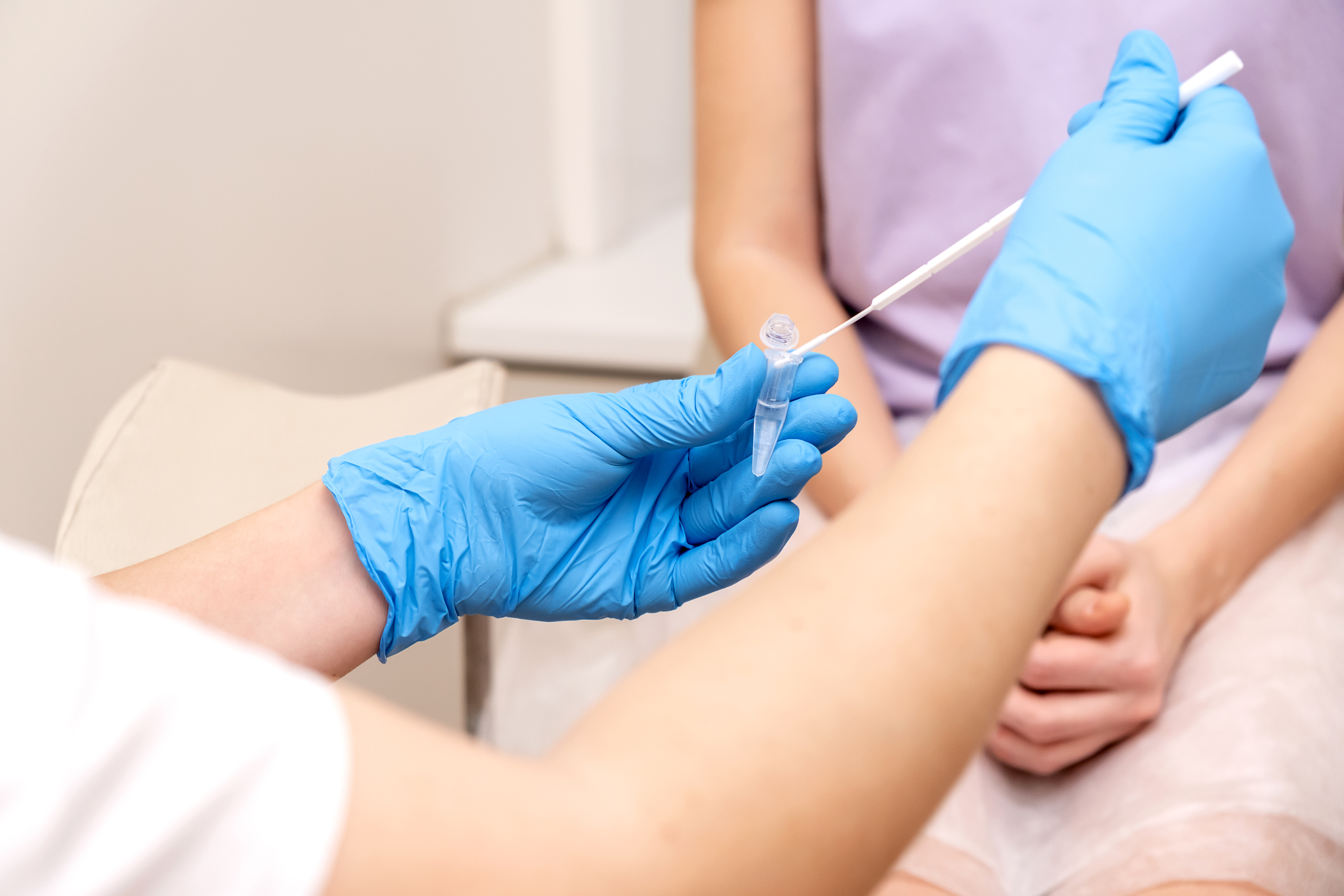Scalp Psoriasis vs Dandruff: How Do I Tell The Difference?
Key Takeaways
- Dandruff and scalp psoriasis can look similar, but they have different causes and require different treatments.
- Dandruff is usually milder and treatable with OTC shampoos, while scalp psoriasis may need prescription medications.
- Proper diagnosis by a healthcare provider is key, and prevention strategies like gentle hair care and lifestyle adjustments may help minimize flare-ups.
Many people confuse scalp psoriasis and dandruff, and it’s easy to see why. Both conditions can cause itchiness and a flaky scalp that feels dry and irritated.
But despite their similar appearance, dandruff and psoriasis are two different scalp conditions with unique causes, symptoms and treatments. Understanding the difference is key to finding the right treatment plan and getting relief.
Here’s what you need to know about the difference between scalp psoriasis and dandruff, along with options for treating and preventing both conditions.
What is dandruff?
Dandruff is a common scalp condition that affects about half of people worldwide. It causes white flakes of dead skin to shed from the scalp and is usually caused by an overgrowth of a yeast-like fungus called Malassezia. This fungus can irritate the scalp and cause it to shed skin cells more rapidly than usual.
Dandruff can also be a result of oily skin, not washing your hair enough, or a sensitivity to hair care products like shampoo or hair spray.
The most common symptoms of dandruff are:
- Small, white or yellow flakes in your hair or eyebrows
- An itchy scalp (may become red due to frequent itching)
- Greasy or oily buildup
Dandruff is a common symptom of a condition called seborrheic dermatitis, which can also cause larger, yellow flakes on your scalp. If you’re not sure what’s causing your scalp flaking, a dermatologist can help diagnose your symptoms and figure out the best treatment plan for you.
What is scalp psoriasis?
Scalp psoriasis is an autoimmune disorder that causes skin cells to build up on the scalp due to an overactive immune system. This creates thick, scaly patches (called plaques) that shed large, silvery-white flakes.
Scalp psoriasis is a form of plaque psoriasis and may appear not only on the scalp but also around your forehead, neck, or ears. This skin condition can be itchy, painful, and lead to temporary hair loss due to scratching or inflammation.
Common symptoms of scalp psoriasis include:
- Thick, white or silvery skin flakes
- Well-defined, raised plaques (red, brown, gray or purple)
- Itchiness, burning, or soreness
- Cracked skin and hair loss (in severe cases)
Scalp psoriasis is a chronic condition, meaning that there’s no cure for it. However, it can be managed with certain medications and lifestyle changes. A dermatologist can help you determine the best treatment options for your symptoms and prescribe medications if appropriate.
How to tell the difference between dandruff and scalp psoriasis
The best way to determine if you have dandruff or psoriasis is by talking to a licensed healthcare provider for a diagnosis. However, there are a few key visual distinctions between the two conditions: dandruff flakes tend to be smaller and white, while psoriasis plaques are larger and silvery-white. Scalps with dandruff also tend to appear oily or greasy, while scalps affected by psoriasis are usually dry, red and inflamed.
You can compare important differences using the chart below.
| Type of symptom | Dandruff | Scalp psoriasis |
|---|---|---|
| Flakes | Small, white or yellow | Large, silvery-white |
| Itching | Mild to moderate | Moderate to severe |
| Scalp appearance | Mild redness, oily | Red, dry, inflamed with plaques |
| Affected areas | Scalp, eyebrows | Can affect scalp, neck, forehead, & around or inside your ears |
Over-the-counter and prescription treatment options for dandruff
Dandruff is a manageable condition that can usually be treated with over-the-counter (OTC) shampoos. Look for OTC dandruff shampoos with active ingredients like zinc pyrithione, selenium sulfide, salicylic acid, or coal tar.
If your dandruff isn’t improving with OTC shampoos, talk to your dermatologist about prescription treatments. They may prescribe one of the following:
- Fluconazole (Diflucan): An oral antifungal that treats dandruff by preventing fungal cell membranes from forming
- Ketoconazole (Nizoral): A topical shampoo that reduces dandruff by directly killing Malassezia fungi on the scalp
- Clotrimazole (Lotrimin), a topical antifungal cream that helps manage dandruff by damaging fungal cell membranes to stop their growth
- Terbinafine (Lamisil), an antifungal that works by killing dandruff-causing fungi
OTC and prescription treatment options for scalp psoriasis
While there isn’t a cure for scalp psoriasis, there are a range of OTC and prescription options to manage symptoms and keep flare-ups under control.
For mild scalp psoriasis, consider OTC shampoos with active ingredients like salicylic acid, coal tar, or low-strength corticosteroids. If OTC treatments aren’t improving your scalp psoriasis symptoms, your dermatologist may suggest prescription medications.
Common prescription scalp psoriasis medications include:
- Hydrocortisone (Cortef): A topical steroid that helps calm skin irritation and inflammation in mild cases of psoriasis
- Clobetasol propionate (Temovate): A topical steroid that reduces inflammation, itching, and plaque thickness
- Mometasone furoate (Elocon): A topical steroid that reduces inflammation and itching
- Betamethasone dipropionate (Diprolene): A corticosteroid that helps shrink plaques and control itching
- Tacrolimus (Protopic): A medication that helps suppress overactive immune responses and is sometimes used off-label for psoriasis
- Triamcinolone (Kenalog): A medication that suppresses the immune system to decrease redness and scaling
- Methotrexate (Trexall): A medication that reduces immune system activity that causes psoriasis
- Roflumilast (Zoryve): A topical medication that reduces inflammation
- Calcitriol (Vectical): A medication similar to vitamin D3 that slows down the growth of skin cells and reduces inflammation
- Calcipotriene (Dovonex): Another medication similar to vitamin D3 that slows down the growth of skin cells to help flatten out scalp plaques
In more stubborn or widespread cases, your provider might suggest phototherapy (UV light therapy) to slow down psoriasis skin cell growth.
Biologics (medications that decrease the activity of the immune system) may also be prescribed to target the underlying immune response that’s triggering your symptoms. However, it’s important to note that biologics can make you more susceptible to infections, so your provider may wait to see if other treatments have failed before prescribing them.
Prevention tips for dandruff and scalp psoriasis
While you may not be able to prevent these conditions entirely, certain habits can reduce flare-ups and control symptoms.
Tips for preventing dandruff include:
- Keep your scalp clean and moisturized to keep oil under control (but be careful not to over-wash your scalp to avoid drying it out)
- Use gentle, fragrance-free shampoos to avoid irritation
- Limit your usage of styling products; if you notice that your dandruff worsens after using a certain hairspray or shampoo, try removing it from your routine to see if your symptoms improve
Tips for managing psoriasis include:
- Limit alcohol, tobacco use, and sugar intake, all of which are linked to psoriasis inflammation
- Avoid cold, dry weather. Sunny, humid conditions can help manage plaques
- Manage your stress levels, which can cause flare-ups
- Protect your scalp with SPF and hats; skin injuries like sunburns or even minor scrapes can cause your psoriasis to flare up
- Avoid scratching your scalp, which can worsen inflammation and cause hair loss
How Sesame can help
Not sure whether you're dealing with scalp psoriasis, dandruff, or another skin condition? A licensed provider through Sesame’s Skincare Rx subscription can help you get to the root of your symptoms and create a personalized treatment plan.
The $59/mo. subscription includes access to a dedicated dermatologist or provider of your choice who can prescribe a range of medications, including creams, shampoos, and biologics for your symptoms. The subscription also includes ongoing video visits, along with unlimited provider messaging, for fast answers, treatment adjustments and same-day prescription refills if needed.

